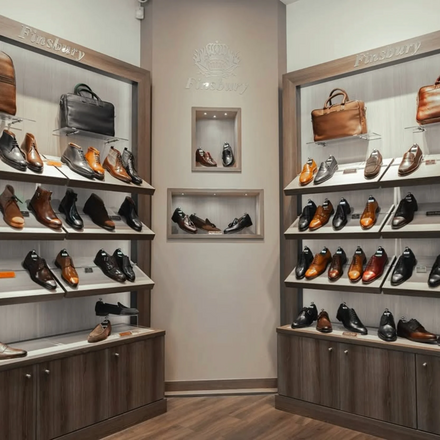Top franchise sectors driving growth across Europe

Franchising in Europe is booming—discover which sectors lead growth through data, key markets, and standout brands.
Europe’s franchising landscape in 2024–2025 is both vast and evolving. With more than 180,000 franchise outlets across approximately 24,600 brands, the continent remains one of the most mature and resilient markets in the world. Leading economies such as Germany, France, and the United Kingdom account for the majority of these operations, while franchise employment across Europe reaches around 2.6 million people. Within this framework, three areas clearly stand out for their scale, innovation, and growth potential.
Food and beverage: a market leader
The food and beverage sector continues to dominate, as it has for decades. Globally, more than 42 percent of all franchise establishments fall into this category, and the trend is even more pronounced in Europe. In France alone, the sector generated €32.45 billion in sales across over 18,000 outlets in 2023, marking a year-on-year increase of more than 15 percent. Major players such as Burger King, Popeyes, and Tim Hortons, operated under Restaurant Brands Europe, reported €1.33 billion in sales in Spain, Portugal, and Italy in 2024, representing a 12 percent annual growth and a total of 1,052 restaurants in those markets. This demonstrates both the resilience of fast food and the ability of global brands to adapt to diverse European consumer preferences.
Services, wellness and digital growth
Alongside food and beverage, service-oriented franchises are rapidly gaining ground. The segment includes fitness, wellness, education, and personal care, and it is currently expanding at a faster pace than many traditional retail formats. In France, personal services recorded the strongest growth in 2023, with outlets rising by more than 40 percent, sales increasing by 45 percent, and the number of franchisees climbing by over 34 percent. A striking example is fit+, a German fitness chain that relies on a staffless, technology-driven model. With 250 clubs and 87,000 members, the company is projecting turnover above €30 million and preparing for international expansion. This model reflects broader social shifts: urban populations demand flexible, affordable, and digital-first services, and franchising offers a tested structure for rapid scaling.
Retail and fashion: tradition meets innovation
Retail and fashion continue to provide a reliable foundation for franchising in Europe, particularly in lifestyle and everyday consumer goods. Established names such as Calzedonia illustrate the appeal of affordable fashion, with initial investments around €90,000 and average annual sales of €500,000 to €600,000. Large-scale retailers like Spar, founded in the Netherlands, operate 13,000 stores across 48 countries, including more than 900 in France, with sales per outlet ranging from €800,000 to €5 million. At the same time, emerging brands are shaping the market with innovative concepts. Dreams Donuts, a Belgian chain with more than 50 outlets in Belgium and France, requires a modest entry fee of €34,999 and has quickly established itself in the competitive bakery sector. Pret a Manger, known for its organic and fresh approach to fast casual dining, continues its expansion with investment levels between €100,000 and €200,000. Even regional players, such as Gregory’s Coffee from Greece with 353 stores and revenues close to €80 million, have secured positions among Europe’s top ten coffee chains, showing how local concepts can scale successfully.
Outlook for European franchising
The European franchise market remains both stable and dynamic, driven by consumer demand for convenience, health, and affordability. While food and beverage still account for the largest share, services and wellness are rapidly redefining the landscape, and retail continues to provide solid opportunities for both global giants and local innovators. Together, these sectors form the backbone of a franchising ecosystem that not only supports millions of jobs but also shapes how Europeans eat, shop, and live in an increasingly interconnected marketplace.
Featured franchises
No featured franchises
Breaking news
Show all
Pandora Greenbox franchise
Pandora Greenbox offers a scalable fast-casual concept combining healthy cuisine, smart design and strong unit economics across Europe.

Expanding premium footwear through franchising
A French footwear brand expanding through franchising, offering structured entry into premium shoe retail with established operational standards.

Franchise model in sustainable water solutions
An international franchise network focusing on water generation and distribution technologies designed for commercial and residential markets.

Milano Cosmetics franchise overview
Milano Cosmetics offers a global franchise model for professional beauty salons with defined financial terms, operational support, and...


